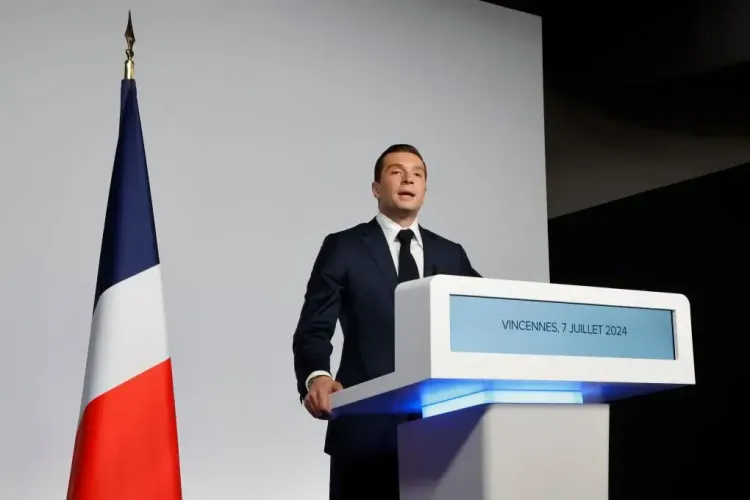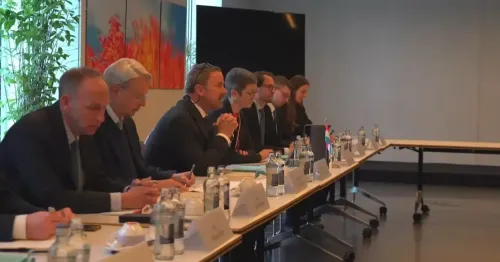Political Turmoil in Europe Amidst Rising Far-Right Influence

Synopsis
Key Takeaways
- The Patriots for Europe summit in Madrid drew over 2,000 participants.
- The far-right is reshaping Europe’s political landscape.
- France's National Rally has gained significant parliamentary seats.
- Germany's AfD is becoming a major political force.
- Far-right movements threaten European integration and unity.
Rome, Feb 16 (NationPress) The recent assembly of far-right leaders and party representatives from various parts of Europe has revealed a notable divide in the continent's political landscape.
The Patriots for Europe (PfE) summit, which took place earlier this month in Madrid, Spain, drew over 2,000 attendees. This marked the coalition's first significant meeting following its rise to become the third-largest political group in the European Parliament.
During this summit, representatives from far-right political factions openly advocated for their anti-European Union, anti-immigration, and anti-liberal elite viewpoints, as reported by Xinhua news agency.
The ascendance of far-right political movements has notably altered Europe’s political environment in recent years.
In France, the National Rally skyrocketed from single-digit parliamentary seats in 2017 to over 120 seats by 2024, establishing a three-way power dynamic with President Emmanuel Macron’s faction and the left-wing coalition. In December 2024, a coalition between far-right and leftist factions led to the ousting of Prime Minister Michel Barnier, resulting in France's first budgetary deadlock in 45 years and highlighting the precariousness of the ruling alliance.
Germany is similarly facing political instability. Recent polls show that the far-right Alternative for Germany (AfD) party enjoys a support rate of 20 percent ahead of the federal elections, surpassing the ruling Social Democratic Party and positioning itself as the second-largest political entity.
The rise of the far right stems from a mix of economic, social, and political crises. Rising inflation and energy shortages, coupled with immigration-related challenges, have contributed to a loss of faith in traditional parties, especially given the mainstream parties' perceived failure to tackle these issues. Nationalistic and anti-immigrant sentiments have gained traction across Europe.
In Germany, public discontent with the governing coalition, energy shortages, and immigration strategies have propelled AfD's growth. Meanwhile, in France, the National Rally has capitalized on social unrest stemming from Macron's reforms to bolster its political power.
Research conducted by the US think tank Council on Foreign Relations indicates that the rise of far-right factions contributes to the fragmentation of Europe’s political landscape. Their focus on national sovereignty over EU integration poses a threat to European unity and governance.
The increasing sway of France's National Rally and Germany's AfD has already prompted mainstream parties to adopt more conservative positions on immigration and environmental issues.
Experts warn that should far-right factions continue to advance, Europe may encounter significant institutional challenges, jeopardizing the future of European integration.










